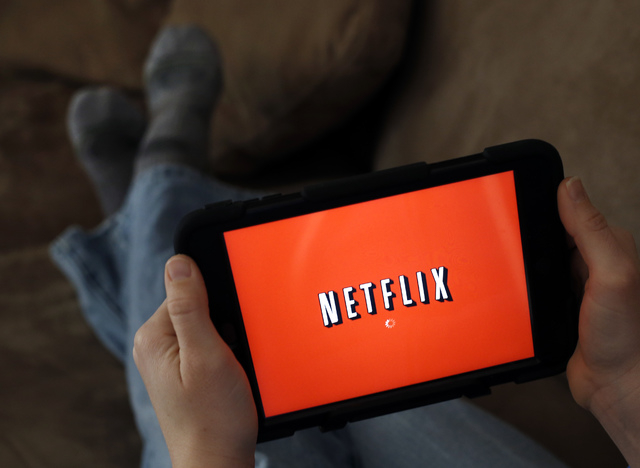The US is more addicted to Netflix than ever
LOS ANGELES —Netflix is gobbling up a larger percentage of Internet traffic than ever, thanks to America’s addiction to the streaming service.
The company increased its share of fixed-line Internet traffic in North America in the first half of 2014, accounting for 34 percent of data flowing to consumers during peak times, up from 32 percent in the latter half of 2013.
That’s according to a new report from Sandvine Inc., a Canadian networking services company.
Sandvine also found that file-sharing — the main tool of content piracy — had fallen to 8.3 percent of all daily network traffic, compared to 31 percent in 2008, as legitimate options flourished. Here are the top 10 bandwidth users:
- Netflix (34.21%)
- YouTube (13.19%)
- HTTP (11.65%)
- iTunes (3.64%)
- Secure Socket Layer (a protocol that nails up a secure channel) (3.42%)
- BitTorrent (3.40%)
- MPEG (2.85%)
- Facebook (1.99%)
- Amazon Video (1.9%)
- Hulu (1.74%)
When it comes to mobile, Netflix doesn’t account for nearly as much bandwidth usage:
- YouTube (17.26%) of aggregate mobile traffic (upstream and down)
- Facebook (14.76%)
- HTTP (12.59%)
- MPEG (7.77%)
- SSL (7.25%)
- Google Market (4.78%)
- Pandora (4.72%)
- Netflix (4.55%)
- Instagram (3.49%)
- iTunes (2.84%)
Sandvine for the first time identified Internet users who are likely “cord cutters,” or those likely to drop traditional pay TV. Cord-cutters in the U.S. were the top 15 percent heaviest users of streaming audio and video.
The group accounted for 54 percent of all Internet traffic, consuming on average 212 gigabytes of data per month. That would be roughly equivalent to watching 100 hours of video per month, Sandvine said.
Meanwhile, the bottom 15 percent of streamers accounted for less than 1 percent of all traffic, averaging under 5 GB of data per month and streaming entertainment less than 1 hour a month.
The report comes amid public feuding between Netflix Inc. and Internet service providers about who should pay for network improvements needed to maintain quality video streams. Federal regulators are also proposing rules that could permit new fast lanes on the Internet for companies that pay for the privilege.

















